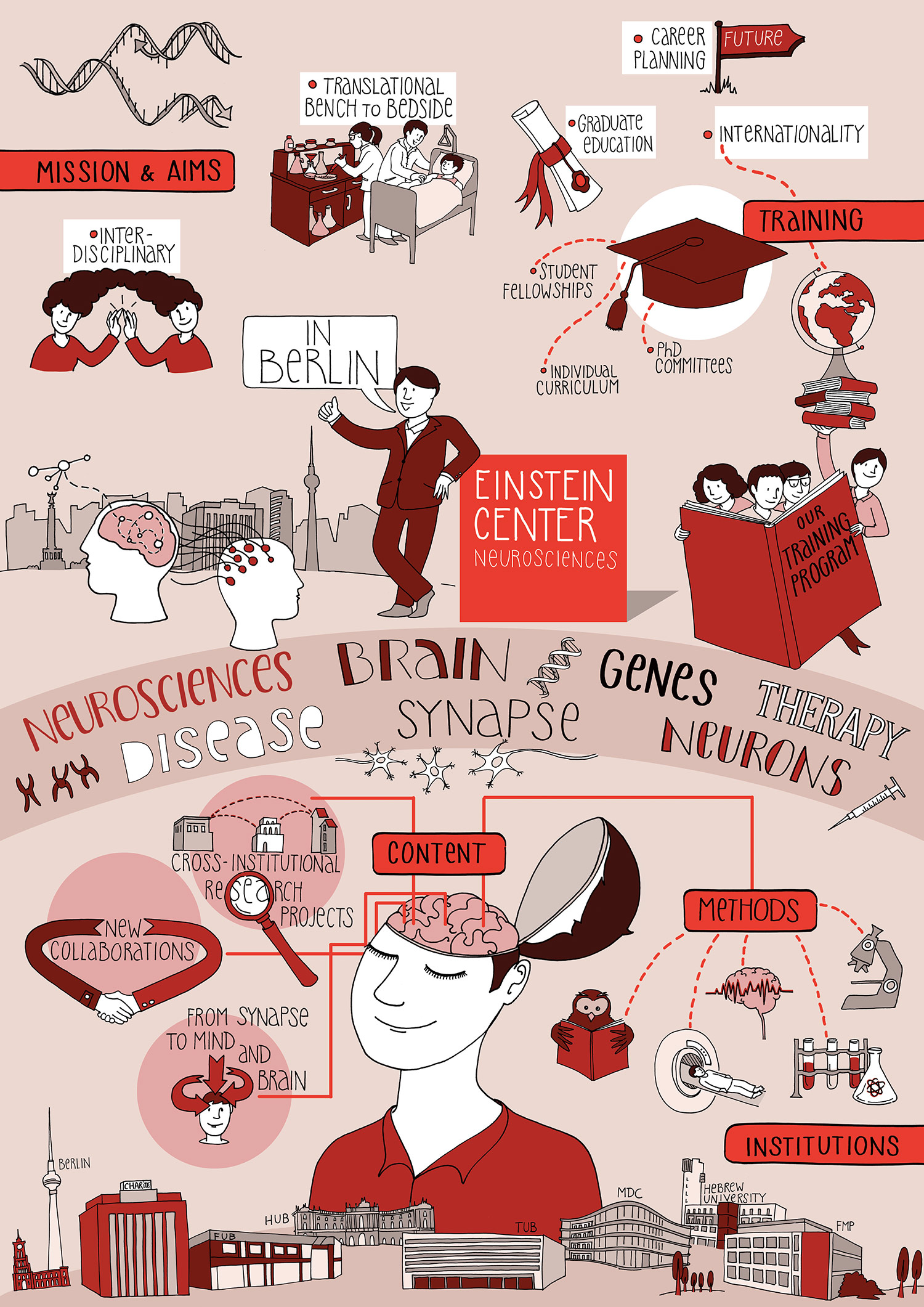- Berlin Brains: How does our brain perceive the outside world?Location: Zeiss Großplanetarium
- 'Circuits Club' Speaker Series 2026Location: BCCN Lecture Hall
On behalf of the Circuits Club Group, Prof. John Tuthill will give a TBA talk as part of the 2026 Student/Postdoc-Run Speaker Series (SPRSS).
- Journal Club for Diversity and Responsible Research and Innovation (DRIVERS)Location: online
- Journal Club for Diversity and Responsible Research and Innovation (DRIVERS)Location: online
- Journal Club for Diversity and Responsible Research and Innovation (DRIVERS)Location: online
- Journal Club for Diversity and Responsible Research and Innovation (DRIVERS)Location: online
News
Welcome to the Einstein Center for Neurosciences Berlin
This Center was founded to provide an umbrella structure to foster interdisciplinary, collaborative research; harmonize and combine the many existing graduate programs in Berlin; and improve international visibility.
We want to facilitate further synergies among the different research groups and promote interactions at all levels.

